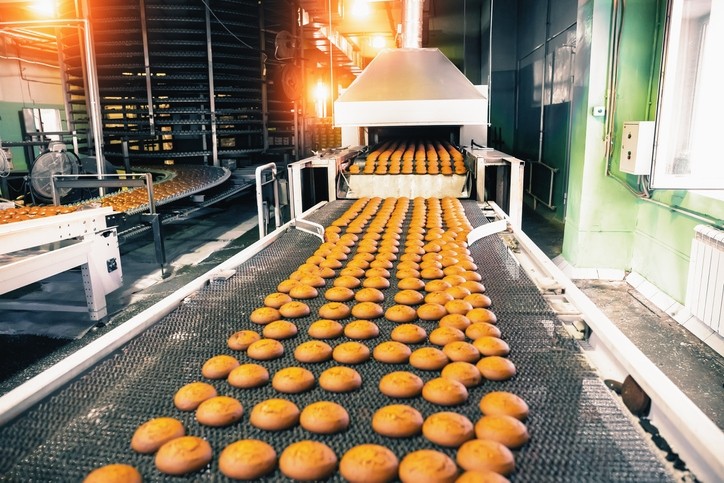Introduction
In today's busy world, the need for hassle-free and ready-to-eat food products gets on the increase. This has actually brought about a raised dependence on contract food manufacturing, where firms contract out the manufacturing of their food products to specialized manufacturers. However, one aspect that is frequently forgotten in the contract manufacturing process is reliable food storage space and distribution. In this post, we will check out the relevance of efficient food storage space as well as distribution in contract manufacturing as well as its impact on the general quality as well as success of food products.
The Function of Contract Food Manufacturing in Australia
Australia has a growing food market, with a wide variety of regional and also worldwide brands dealing with the diverse preferences and also preferences of consumers. Contract food manufacturing plays a vital function in this sector by giving business with the necessary sources, proficiency, as well as framework to efficiently produce their food products. From little startups to large firms, numerous businesses look to get suppliers to bring their cooking creations to life.
Contract Food Manufacturing in Brisbane: A Hub for Innovation
Brisbane, the resources city of Queensland, is known for its vivid food scene and ingenious cooking offerings. It comes as not a surprise that contract food manufacturing has flourished in this region. With state-of-the-art centers as well as a competent labor force, contract food producers in Brisbane are well-appointed to take care of the manufacturing requirements of various companies. Whether it's developing new dishes or scaling up production, these makers play a crucial duty in bringing scrumptious foodstuff to customers' plates.
Ensuring High quality: The Secret to Effective Agreement Food Manufacturing
When it pertains to contract food manufacturing, making sure item high quality is paramount. Makers have to abide by rigorous standards and also policies established by authorities such as the Australian Food Requirement Code as well as Excellent Manufacturing Practices (GMP). From ingredient sourcing to production processes, every step should be meticulously prepared and also performed to maintain the finest quality standards. This not just guarantees client satisfaction yet also assists build trust fund and also trustworthiness for both the contract maker as well as the brand name they are generating for.
The Challenges of Food Storage Space in Agreement Manufacturing
Efficient food storage space is a vital facet of contract manufacturing. The appropriate storage of resources, active ingredients, and also completed items is necessary to keep their high quality and also freshness. Nevertheless, this can be difficult, especially when dealing with perishable items or huge quantities of supply. Variables such as temperature level control, product packaging stability, and also inventory management play a crucial function in guaranteeing that food continue to be safe for consumption throughout the supply chain.
Overcoming Storage Difficulties: Modern Technology and also Innovation at Play
In recent years, improvements in modern technology have actually changed the way food is kept as well as distributed in agreement manufacturing. From modern refrigeration systems to innovative stock administration software, manufacturers currently have access to tools that can improve their operations as well as make certain optimum storage conditions. These technical innovations not just enhance food safety but likewise boost efficiency as well as lower waste, inevitably benefiting both the producer and also completion consumer.


The Importance of Efficient Food Distribution
Efficient food distribution is an additional crucial element of successful contract manufacturing. When the food products are manufactured as well as kept suitably, Click here! they require to reach their designated locations promptly. Timely distribution ensures that the products remain fresh and also fulfill client assumptions. Additionally, reliable circulation likewise minimizes expenses associated with transportation and logistics while maximizing total productivity.
From Farm to Fork: The Trip of Food Products
The journey of food from farm to fork entails numerous stages, each requiring cautious planning and execution. Let's take a more detailed take a look at each action involved in this process:

Sourcing Raw Materials: Agreement food manufacturers function carefully with suppliers to resource high-quality raw materials for their items. This consists of every little thing from fresh fruit and vegetables to spices, spices, as well as packaging materials.
Food Production: Once the raw materials are sourced, the contract maker follows a collection dish and production procedure to produce the desired foodstuff. This entails different techniques such as cooking, cooking, blending, and packaging.
Quality Control: Throughout the production process, quality control actions are applied to guarantee that the ended up product meets all safety as well as quality standards. This consists of normal examinations, testing, and adherence to regulatory requirements.
Food Packaging: After the item is made, it is very carefully packaged to maintain its quality and also honesty during transportation and also storage space. Contract manufacturers typically offer personalized packaging options customized to satisfy the particular demands of their clients.
Storage as well as Distribution: As soon as packaged, the food products are kept in suitable problems to preserve their quality. From temperature-controlled storage facilities to reliable logistics networks, contract suppliers make certain that the items are dispersed successfully and reach their destinations on time.
FAQs
What is contract food manufacturing? Contract food manufacturing refers to outsourcing the production of foodstuff to customized producers. This allows companies to focus on other facets such as marketing as well as distribution while making certain premium products for their customers.
Why do companies choose contract food manufacturing in Australia? Business select contract food manufacturing in Australia for various reasons, including cost-effectiveness, access to specialized expertise, compliance with regulatory criteria, as well as scalability of production.
What are the advantages of agreement food manufacturing? The advantages of contract food manufacturing include minimized capital investment, accessibility to advanced modern technologies as well as equipment, boosted manufacturing performance, faster time-to-market, and also flexibility in meeting changing market demands.
What is the duty of food packaging in contract manufacturing? Food product packaging plays an essential role in agreement production as it ensures product security as well as extends service life. It also functions as an advertising and marketing tool by providing information concerning the item and boosting its aesthetic appeal.
How important is food safety in contract manufacturing? Food security is of utmost relevance in agreement production. Abiding by rigorous food safety standards ensures that the items are secure for usage and also assists develop consumer trust.
How does reliable food storage space as well as circulation effect the success of contract manufacturing? Efficient food storage space and circulation play a considerable duty in the success of contract manufacturing. They ensure that foodstuff stay fresh, get to customers promptly, as well as preserve their quality throughout the supply chain.
Conclusion
Efficient food storage and also circulation are important components of effective contract manufacturing. From making certain product top quality to decreasing waste and conference customer assumptions, every element of the supply chain plays a significant function in delivering safe as well as premium food to consumers. By leveraging technological improvements, sticking to regulatory requirements, as well as focusing on customer fulfillment, contract makers can enhance their competitiveness out there while adding to the overall growth of the Australian food industry.